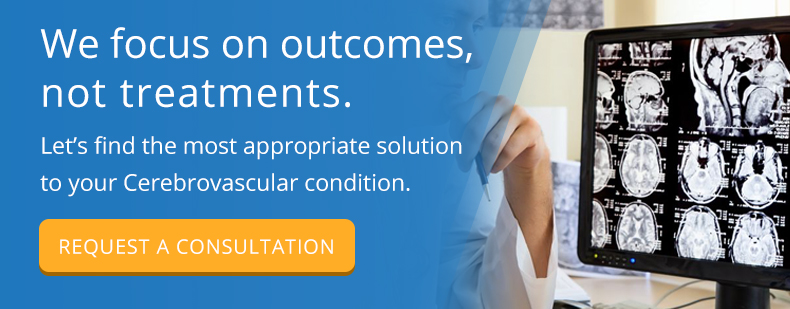Transient ischemic attacks (TIA), more commonly known as mini strokes, affect nearly 250,000 people per year in the United States. It’s not an extremely common condition, but it happens fairly often, especially in people over 55 years old.
People with mini strokes often experience numbness, slurred speech, confusion, poor vision and partial paralysis. The symptoms usually last less than 24 hours. In fact, more disappear within an hour. The strokes occur when an artery in your brain gets blocked and prevents the blood from flowing normally.
If you have been diagnosed with mini strokes, you can follow this patient guide to find treatment options that will help you live a healthier life – free from the signs and symptoms of TIA.
Do Some Research to Find the Right Doctor for You
Mini strokes can lead to serious health consequences. If left untreated, you may eventually lose physical and cognitive abilities, such as speaking. The seriousness of mini strokes makes it important for you to find an experienced doctor who you feel comfortable working with closely.
When searching for a doctor, talk to other people in your family or community who may have experienced mini strokes. They may have advice that helps you choose a reliable doctor in your area of New Jersey.
You can also find qualified doctors by requesting a referral from your insurance company and searching the internet for practices near you.
Keep in mind that you may need to undergo a surgical mini stroke treatment. If your mini strokes don’t respond to medication and lifestyle changes, then your doctor may want to perform a cerebral bypass surgery. The possibility of undergoing surgery makes it essential that you choose an experienced doctor who makes you feel comfortable.
Talk to Your Doctor to Understand Your Diagnosis
Once you find a doctor you trust, you should schedule a meeting to discuss your diagnosis. Mini strokes can cause a variety of symptoms in people, so your condition may not look like those of other patients. Talking to your doctor is the best way to learn about your specific type of mini strokes so you can decide how you want to reduce your risk.
Scheduling a conversation with your doctor also ensures that you understand your diagnosis. Your doctor may use CT scans, MRI results, ultrasounds and other techniques to make sure you understand your condition and how it affects your health.
Since you may have to meet with your doctor several times, it makes sense to choose someone who works in your area. You don’t want to have to drive hundreds of miles just to talk to your doctor. Select a specialist near you to make discussions and your mini stroke treatments more convenient. A lot of traveling, after all, can create stress that increases the chance that you will have more strokes.
Make Changes to Your Lifestyle to Manage the Condition
Your doctor may ask you to make several lifestyle changes that will help lower your risk of having more mini strokes. The specific changes that you should make will depend on your current lifestyle and health. Some common changes include getting more cardiovascular exercise to lose weight and lower your blood pressure, give up tobacco products and eat a balanced diet that keeps your blood sugar under control.
Several medications show evidence that they work well as mini stroke treatments. Your doctor may recommend medications such as aspirin, clopidogrel (Plavix), ticlopidine (Ticlid) or dipyridamole (Persantine). These drugs have been shown to inhibit blood clot formation and enlarge blood vessels, which makes them effective at lowering the risk of TIA.
In some cases, your doctor may recommend that you consume about one serving of alcohol per day. Studies have shown that one glass of red wine per day contains the right amount of resveratrol to protect the heart and brain. Too much alcohol, however, can have the opposite effect, so you may need to avoid alcohol if you have a tendency to drink frequently.
Making healthy changes to your lifestyle cannot guarantee that you will not have more mini strokes, but it can lower your risk significantly.
Follow Your Treatment Plan to Recover
The mini stroke treatment that your doctor recommends will depend on the underlying cause of your condition. Some people can prevent strokes by making lifestyle changes. Others have to take medication or undergo surgery. Your treatment plan will address your specific needs.
Your mini stroke treatment plan will only work when you follow it precisely. Never skip your medications and don’t let yourself fall back into unhealthy habits. Your doctor and his or her staff will provide some support to help you adjust to your treatment plan, but the responsibility ultimate falls on you.
Mini strokes usually respond well to treatments. As long as you choose an experienced doctor and follow your treatment plan, you can lower your risk of having more strokes.


